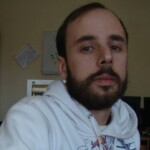75% of scientists want to leave the US because of Trump's policies, — Nature survey
According to a survey conducted by the journal Nature, 75% of American scientists are considering leaving the United States because of the policies of President Donald Trump’s administration.
ULA pushes SpaceX aside: new Vulcan rocket approved by the US for security missions
The US Space Force has certified a new Vulcan Centaur missile from the United Launch Alliance (ULA) to launch security missions.
Quantum breakthrough: real random numbers are generated for the first time
Scientists have managed to generate real random numbers for the first time with the help of a 56-qubit quantum computer.
The world's first 3D holographic processor creates holograms in real time
Engineers from the Electronics and Telecommunications Research Institute in South Korea have created the world’s first 3D holographic processor.
Will life disappear if a black hole in the center of our galaxy erupts? Scientists have observed this in another
Astrophysicists have discovered a large-scale radiation from a supermassive black hole in the distant spiral galaxy 2MASX and are now wondering if the same thing could happen in the Milky Way.
How much did the Boeing Starliner crew earn for 9 unplanned months in orbit
NASA astronauts Suni Williams and Butch Wilmore, who, as part of the first test flight of the spacecraft Boeing Starliner were forced to spend 286 days in orbit instead of 8, and were not compensated.
Silicon-free: «the world's first 2D GAAFET transistor» 40% faster than Intel's counterparts
Developers from Peking University have announced the creation of the world’s first two-dimensional low-power transistor GAAFET.
Light has become solid: a scientific breakthrough in quantum physics
Italian physicists for the first time managed to use the energy of light to create a superfluid solid

Spelling error report
The following text will be sent to our editors: